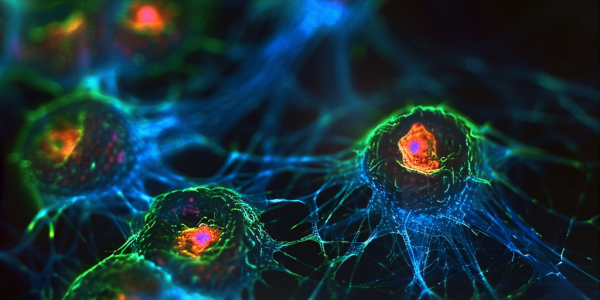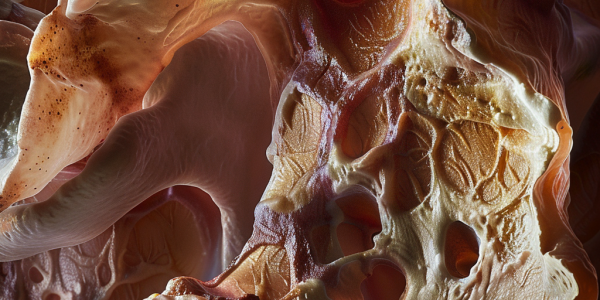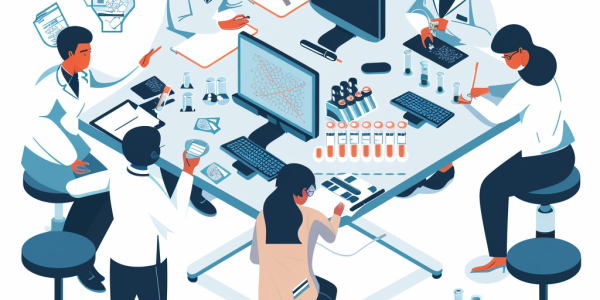Groundbreaking Cancer Research Discovery by Late UVA Scientist John Herr
Groundbreaking cancer research has emerged from the late University of Virginia School of Medicine scientist, John Herr, regarding the SAS1B protein found in cancer cells. Collaborating with Dr. Craig L. Slingluff Jr., Herr’s work holds the promise of innovative treatments for solid cancer tumors like breast cancer, lung cancer, and melanoma. Recent scientific publications highlight the significant impact of Herr’s investigations, pointing towards potential groundbreaking advancements in cancer therapy.
Revolutionary Peptide-Based Hydrogels Breakthrough in Biomedical Engineering
Scientists have made a breakthrough in biomedical engineering with peptide-based hydrogels that can repair damaged organs and tissues. These innovative materials offer targeted drug delivery, biocompatibility, and versatility for a wide range of medical applications, promising to revolutionize regenerative medicine.
Yoga Enhances Heart Health in Heart Failure Patients
Recent research presented at the Heart Failure 2024 scientific congress of the European Society of Cardiology reveals that incorporating yoga practices, such as breathing techniques and meditation, alongside traditional medications can significantly enhance heart health and functional capacity in patients with heart failure. The study, conducted by Dr. Ajit Singh from the Indian Council of Medical Research, demonstrates the long-term benefits of yoga in improving symptoms, well-being, and heart function for individuals living with heart failure.
Understanding and Preventing Bad Breath
Learn about the causes of bad breath, also known as halitosis, and how to prevent it through good oral hygiene practices. Discover the symptoms and factors that contribute to bad breath, such as consuming pungent foods, smoking, and dry mouth. Find out how regular brushing, flossing, and professional dental care can help combat halitosis and improve overall oral health.
The Legacy of Richard ‘Rick’ Slayman: First Man to Receive Pig Kidney Transplant
Discover the groundbreaking story of Richard ‘Rick’ Slayman, the first man to undergo a genetically modified pig kidney transplant. Despite his passing, his journey offers hope and inspiration for the future of xenotransplantation and the potential of genetically modified animals in organ transplants.
Breakthrough in Acute Leukaemia Treatment
Recent research published in Nature reveals a potential breakthrough in acute leukaemia treatment, focusing on the role of PI3Kγ in cancer cells. The study identifies a dependency on the PI3Kγ complex in high-risk acute leukaemias, with promising results from treatment with a selective PI3Kγ inhibitor eganelisib. Combining eganelisib with cytarabine shows improved survival rates, offering hope for patients with acute leukaemia.
Innovative Heart Pump Offers Hope for Children Waiting for Transplants
Discover how the innovative Jarvik 2015 implantable heart pump is revolutionizing the way children with heart failure await transplants. With fewer external components and greater freedom of movement, this device offers a promising solution for young patients to wait for transplants in the comfort of their own homes. Learn more about the potential benefits and impact of this groundbreaking technology in pediatric cardiology.
Experimental Gene Therapy Restores Vision in Patients with Inherited Blindness
An experimental gene therapy has shown promising results in restoring vision for patients with inherited blindness. College student Olivia Cook underwent a CRISPR-based gene-editing treatment that significantly improved her vision, providing hope for advancements in science and vision restoration. Despite being experimental, the therapy offers hope for treating inherited retinal disorders and combating blindness worldwide.
Barriers to Lung Cancer Screening and the Importance of Early Detection
Learn about the importance of lung cancer screening and the barriers that hinder its widespread adoption. Early detection is key in improving patient outcomes, but low screening rates among at-risk populations pose a challenge. Addressing factors like lack of awareness, physician reluctance, insurance coverage, and stigma is crucial in increasing screening uptake and saving lives.
Study Finds Potential Negative Implications of Large Language Models in Breast Imaging Classification
A recent study published in Radiology highlights the potential negative implications of using large language models like GPT-4 and Google Gemini in breast imaging classification. While these AI models have shown promise in certain tasks, they may fall short in more complex medical reasoning. The study compared the performance of LLMs with board-certified breast radiologists in assigning BI-RADS categories, revealing a lack of strong agreement. Lead author Dr. Andrea Cozzi stresses the importance of evaluating the limitations of generic LLMs, especially in scenarios where medical reasoning is critical. The findings emphasize the need for better regulation of LLMs in medical settings to ensure accurate classification of imaging reports and improve patient care.










